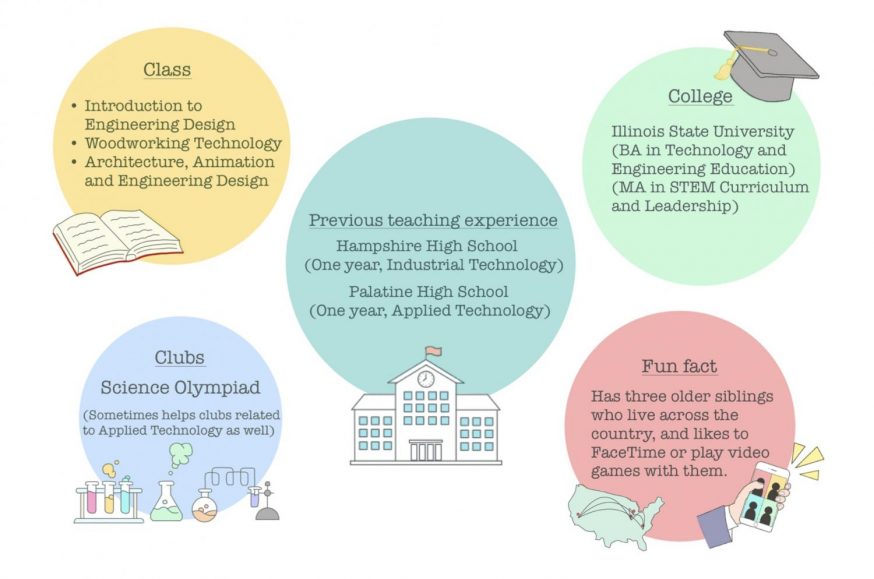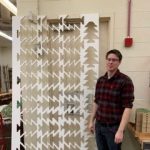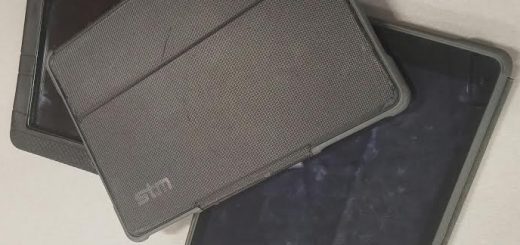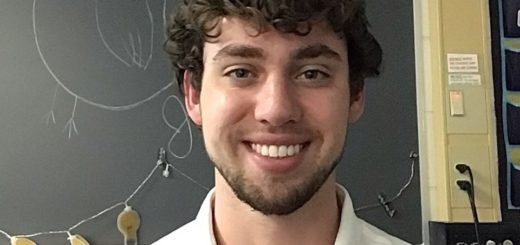New Teacher Spotlight: Jon Babcock
This school year, Conant has nine new teachers. Seeing as most students won’t be introduced to them in the typical way, the Crier is providing short features on each. Today, the Crier would like to introduce Jon Babcock from the applied technology department.
 Kana Nagoya | Conant Crier
Kana Nagoya | Conant Crier Crier: What is your background as a teacher?
Babcock: I am a second year District 211 employee. Last year I was at Palatine High School. I taught all applied technology classes, Geometry and Construction, Woods, a special applied technology class. I’m also a D211 alum. I graduated from Fremd in 2014. So I went to Fremd, I know all the applied tech teachers there, I ended up teaching at Palatine and made a whole new team of teachers there, and now I’m at Conant. I’m doing a tour of D211. Here at Conant, I’m helping out with the Science Olympiad, as well as any sort of set building teachers need help with.
Crier: Why did you become an applied technology teacher?
Babcock: I really enjoyed my math and science classes, but what I really enjoyed is when my applied tech classes were applying the math and science concepts to them. Fortunately, I was in geometry at the same time as I was in some applied tech classes, so seeing the patterns of geometry and applying them to applied tech was very interesting. Getting to see a hands-on environment, actually being in a lab environment where you display what you know through projects, is how I like to learn. I don’t like to sit and read and take multiple choice tests. I’d rather do a big project and show you what I know.
Crier: What is one thing that you keep in mind when teaching students?
Babcock: I think the most important thing is the flexibility aspect. Whether it’s a link or a website, just making sure it’s readily available in every form possible is very important. If something is not working for one person you have to be malleable to accept and understand them.
Crier: What is something challenging about teaching in this remote learning environment?
Babcock: With applied tech, we are a very lab heavy type classroom, so it makes it difficult to teach in this remote learning environment. Just the encouragement of coming in for academic support or coming into those clubs related to applied tech is more important than ever now because some of the skills, knowledge, and know-how really kind of hit a wall with e-learning. We do a lot of talking, reading, and quizzing during this remote learning environment, but we’d rather have you in here to experience it. We’re really trying to do things as safely as possible to get kids in and just really encouraging kids to utilize these opportunities.
Crier: What at Conant are you excited about or looking forward to?
Babcock: I’m the most excited to see the clubs and activities come back. For a lot of my classes, I’ve been talking about what clubs are happening after school that day, as well as what’s happening after school the following day. I won’t see them for two days so I want to let them know what are some opportunities that they could take advantage of today and tomorrow, because I think socialization is the biggest thing that everyone is struggling with and a lot of motivation has been lost.
Crier: Why should students take applied technology classes?

Applied technology teacher Jon Babcock
Babcock: I think the most gratifying feeling as an applied tech teacher is hearing students say, “Oh, I’ve learned about this before” and showing the kids that are in their common core classes such as English, math, history, science, and saying, “Yeah, you know I have seen this before and now I’m applying it to a project” or “I’m using tools in the applied tech facility to deepen that understanding of whatever that content is.” I think that is what really makes our classes cool. There’s so many opportunities that almost make you feel like you’re not studying anymore because you’re just in a different classroom where you’re applying it just a little bit differently. No one likes to cram for a test the night before, but if you just are casually exposed to all this content, and maybe a sit down classroom environment versus up on your feet lab, you’re not really studying and you’re just kind of absorbing. So that’s why I would say take applied tech. If you’re not loving math, science, we will show you the other side of the coin related to those fields and how they work in the real world.
Crier: If you weren’t a teacher, what would you be?
Babcock: I knew that I wanted to be a teacher by the end of eighth grade. I just didn’t know what subject. I thought I’d be an art teacher, or a math teacher, or a history teacher. But then I found the applied tech department and knew that that’s what I wanted to do. If I weren’t a teacher I think there’s a lot of great success stories coming out of trades fields where you’re an apprentice and you’re part of one of these unions. Whether it’s electrical, welding, carpentry, construction, any of these trades unions are looking for young talents that are smart. They want to see successful people join our fields, and sometimes they get a bad reputation. I think I definitely find myself enjoying those fields, because I practice them to a minor degree, being a [drama] set builder at Palatine and helping out teachers this year at Conant. I love that style of thinking, such as how do we construct this, how do we build this, how do we solve these small problems that create such a big structure. It’s really cool to see how it comes to life. So if it weren’t for the support that I had, I think I would’ve been looking at the trades field.
Crier: What is something that you’ve regretted through your high school experience? Do you have any advice for students?
Babcock: I would say especially now, just ask your questions. I think that one of the benefits to this remote learning environment can be the private message on Zoom, because it’s not an email that you send right at the end of class to the teacher. Maybe teachers close their email and can’t answer it for a long time. But if I have that in the moment feedback, that private message questions for maybe several students that saw the same question, maybe I didn’t teach something. And that could happen. I think regret wise is not getting involved enough. I think there are tons of cool clubs and activities that you have to just go out and see for yourself and not let your friend decide what you want to do, or what they’re doing, because you might have friends that are super athletes and you’re not an athlete. So, don’t always lean on your friends but be a leader and if something sounds interesting try and reach out to that teacher and learn more. So just staying involved in what piques your interest is always important.
Crier: Do you have any messages for students?
Babcock: A phrase I grew up hearing a lot was always “take care of your tools, and your tools will take care of you.” My grandfather was in the trades fields his whole life. I grew up going to his garage and seeing the whole workbench station. We use tools of all shapes and sizes, and leaning on each other to help each other out is especially important now. Whether you see yourself as a battery or not, you need to keep yourself fully recharged, because you can’t go into a day without being charged. That tool aspect is maybe a little old but, taking care of yourself, getting up in the morning, and keeping everything balanced is so important. I think kids might be struggling to come in because they’re just used to waking up, logging into Zoom, and calling it a day. We’re trying to encourage you to come in and start feeling normal again. We don’t want you sitting at home. We want you here. So “taking care of your tools, and your tools will take care of you” is a motto I live by.




Recent Comments